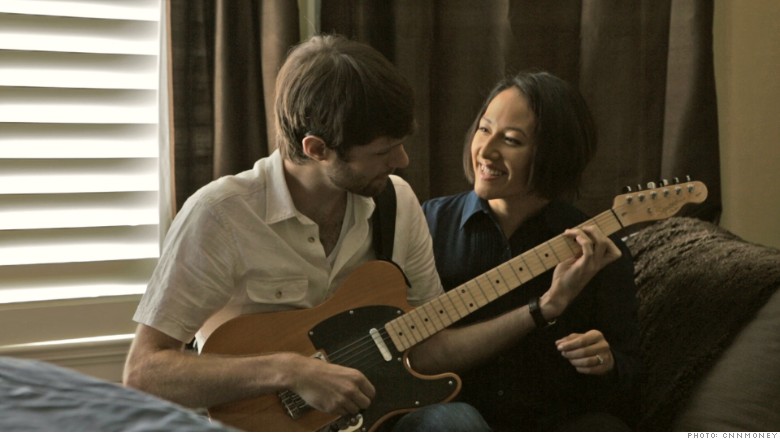Miju Han lives in the Bay Area, works as a product manager and shares a charming apartment with her fiancé.
Here's what makes her love story a bit different: She's also in three other relationships. In addition to her fiancé, Han has been seeing a woman for two years (they recently said, "I love you"). She also dates two other men.
Han, 27, says she never quite colored inside the lines. She grew up in the South, was attracted to women and fascinated by programming. In 2010, she moved to the Bay Area and has since worked at several major tech companies. Han declined to name her current employer.
She met her fiancé when he was 21 and she was 23. They fell in love but weren't ready to cut off other options.
"He hadn't dated many other women in the past, and I wanted to explore too," she explained.
Han says the term for her relationship status is polyamorous, meaning "many loves." People who identify as polyamorous are often in multiple romantic relationships. The arrangements vary, but they have a lack of exclusivity in common.
Han and her fiancé practice a hierarchical style of polyamory. Her fiancé, who asked not to be named, is her primary partner, meaning all other relationships are secondary or more casual. They spend five to six nights a week together and plan on marrying in 2016 and having children at some point. Han's fiancé is also dating three other women.

Han compares her experimentation with her relationship to the experimentation that happens in the Bay Area, a mecca for entrepreneurs who question the way things work.
"I think that in technology, people have higher appetites for risks," she says. "Opening up your relationship is really risky, kind of in a similar way that starting a company is really risky."
In fact, it's just a part of a rich history of sexual exploration in the Bay Area that far precedes the tech boom.
"There's still a lot of cultural taboo around open relationships and polyamory," says Polly "Superstar" Whittaker, who a started a private sex club called Mission Control in 2001. "This is a town that accepts alternative structures."
Chris Messina, an entrepreneur best known for coining Twitter's use of the hashtag, lays it out in numbers.
"We're a very data-driven culture, so if you're trying to build a product -- to draw an analogy -- and it's failing 50% of the time, you might want to consider the design and think about ways of improving it," Messina says.
Messina, 34, says his relationship status is somewhere between non-monogamous and "monogam-ish."

Related: Inside a high-tech swinger's party
"It's a constant, evolving, open, and transparent conversation between us," he says of his current relationship.
But one of the hardest issues many non-monogamous couples face is less analytical: Love is irrational and people are prone to jealousy.
"At the beginning, there was jealousy that we had to work through," Han says. "We had to dig through with the irrationality of, 'Oh my gosh! You might leave me. How could you like this other person?'"
According to a University of Michigan study, 5% of couples in the United States identify as non-monogamous -- it's still a niche community. But the explosion of technology is lifting the curtain on these atypical structures.
Messina cites Reddit and an app called Secret as two of the many online places where people openly discuss alternative relationships.
"There are communities talking about these things and trying to figure out what they are ... with a degree of understanding that just never existed before," Messina says. "It's like, 'Wow, my weird is not so weird. I can find a community of 100,000 people online where a couple years ago, I would have felt like the only one doing this.'"
San Francisco's culture (there's even a community class called "Monoga-maybe") makes it that much easier to be open. And Han said as a tech employee with a solid income and job security, she doesn't face repercussions like people in more traditional cities and industries.
"There really is a downside -- polyamorous people face real discrimination." Han says. "I have the luxury of talking about polyamory openly because, to be frank, I work in tech, and I could find another job if something were happening to me as a result of lifestyle choices."
But the hardest thing for Han right now? Time.
"My dating calendar is very tight and my job is very demanding," says Han, who uses Google calendar to schedules her dates. "It's hard to balance the relationships that I want to deepen with all the demands of my life."
More from Sex, Drugs & Silicon Valley:
Inside a high-tech swingers party

